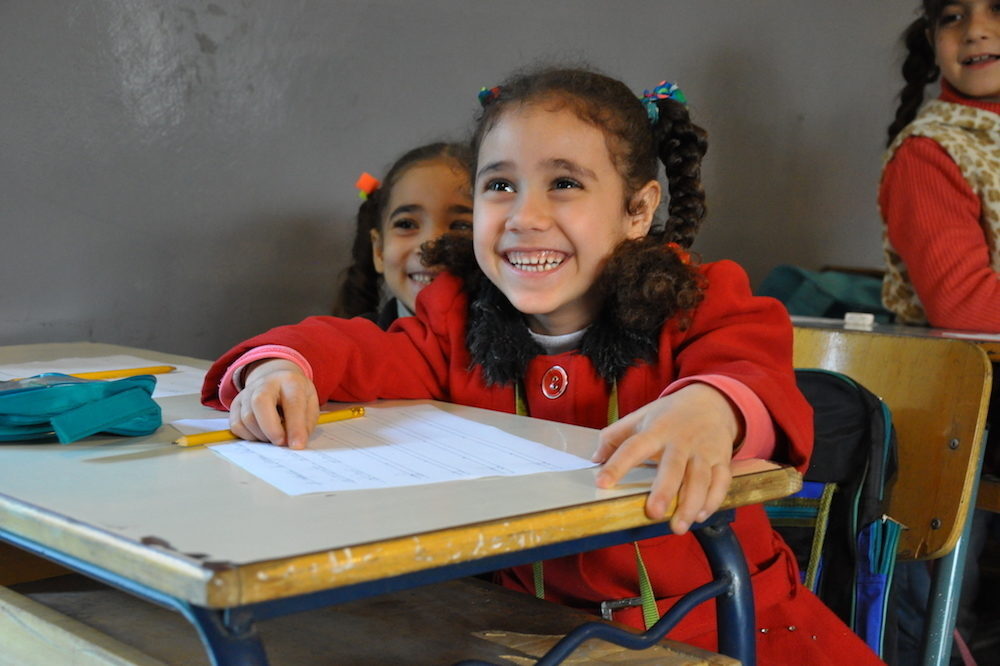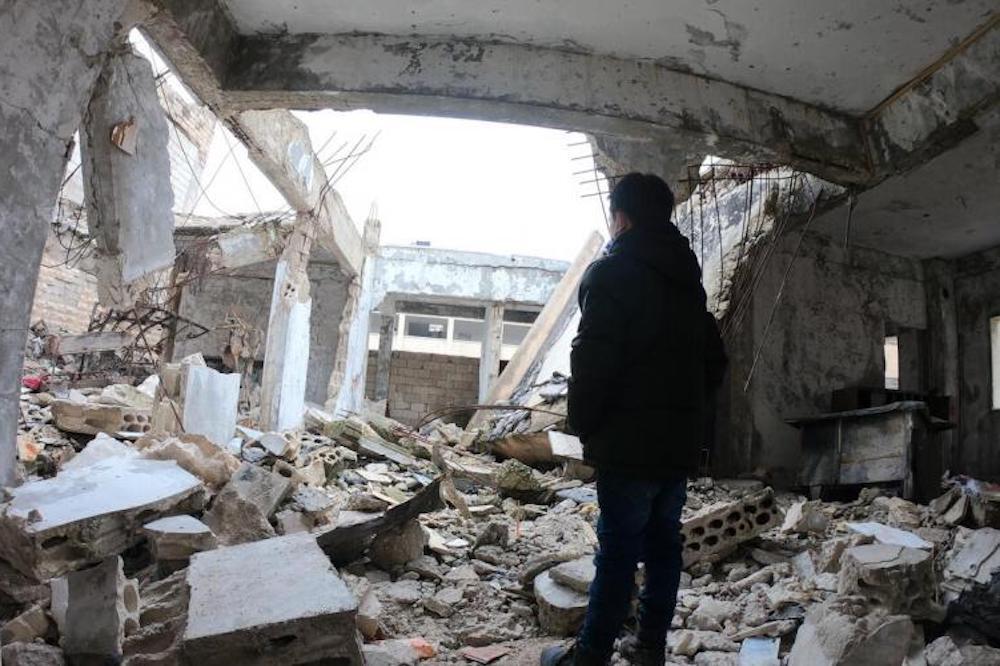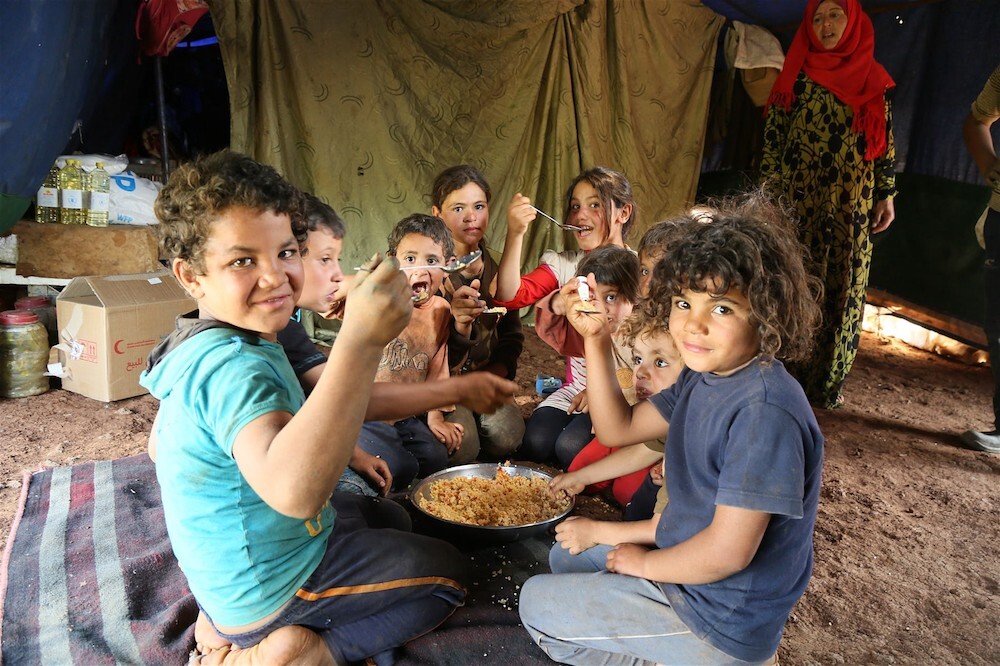
Five things you need to know this week about global education

Children in conflicts, Girls' education, Justin van Fleet, Sarah Brown
Theirworld says G7 leaders have "no plan" for getting the world's most marginalised children into school as part of the pandemic recovery.
Theirworld: G7 countries 'failing the next generation'
Theirworld has accused the G7 countries of failing to support efforts to get vulnerable children back into school in the wake of the pandemic.
A joint statement from Theirworld President Justin van Fleet and Chair Sarah Brown said world leaders were “poised to miss a once-in-a-century opportunity to invest in the next generation”.
Foreign and development ministers met in London this week ahead of the UK-hosted G7 summit next month. They committed to support a target of getting 40 million more girls into school and 20 million more girls reading at age of 10 in low and lower middle-income countries by 2026.
But the promise came as the UK is under fire for cutting its foreign aid budget, which will mean a reduction of about 25% in education spending compared to pre-pandemic levels.
Theirworld’s statement said a global recovery is reliant on leaders of the most powerful countries ensuring everyone, including the poorest, is vaccinated and all children – especially the most marginalised – get a quality education.
It added: “A target was announced for girls’ education with a gaping hole: no plan for 90% of the poorest children in the world. The UK has been silent on a major innovative financing plan for education it once championed, capable of creating hundreds of millions of school places for a fraction of the cost.”
Theirworld recently launched the Education Finance Playbook – a practical guide for governments, donors and philanthropists to fund quality, inclusive education for all by 2030.
Funding to help children in crisis areas
???? Another great step in our partnership with @EduCannotWait who is supporting our Better Learning Programme in the MENA region ???? improving learning capacity by integrating techniques for coping with stress and adversity into daily teaching and learning.https://t.co/Wmu9qH434o
— NRC Humanitarian Policy and Partnerships (@NRC_Geneva) May 5, 2021
Education Cannot Wait has given a $1 million grant to ensure refugee children and youth arriving in Cameroon from the Central African Republic have access to quality learning.
The 12-month emergency response will help more than 6,000 refugee children and youth, as well as more than 1,000 host community children. The investment will build 10 new classrooms, provide school materials and upgrade water and sanitation facilities.
The global fund for education in emergencies also announced $250,000 to support the Norwegian Refugee Council’s Better Learning Programme in the Middle East.
It will provide school-based mental health and psychosocial support and ensure the programme can be taken to scale and replicated across education in emergency projects.
South Sudan reopens schools after a year
A welcome return to school for South Sudan’s students, after a 14-month #COVID19 lockdown, but humanitarian crisis remains, warn @UNICEF @UNmigration https://t.co/5TFDsq74db
— UN News (@UN_News_Centre) May 4, 2021
Children in South Sudan have finally returned to school after the pandemic shut them out of education for 14 months.
Mads Oyen, UNICEF’s chief of field operations, said going back to the classroom was about more than just learning in a country affected by a humanitarian crisis. He added: “Schools are places for children to be safe and to be protected and also to access basic services, school feeding and so on.”
More than two million children, or over 70%, are out of school in South Sudan
Meanwhile, Argentina announced a three-week extension of anti-coronavirus measures that include cancelling all school classes. But Denmark will allow elementary schools to fully reopen this week.
Syrian schools attacked despite ceasefire

Nine school attacks took place after the announcement of the ceasefire in March 2020 (Save the Children)
Attacks on schools in north-west Syria have continued despite a ceasefire agreed more than a year ago, according to Save the Children.
The organisation and partner Hurras Network confirmed 37 attacks on educational facilities since the start of 2020 – nine of them after the ceasefire announcement in March last year.
At least four children and four staff were killed, with the actual number of deaths expected to be higher. Schools were destroyed or damaged and the education of many children was disrupted.
Sara, 10, told of an attack at her school in Ma’arat Nu’man. She added: “I hide in the safest place and I open my mouth and close my ears so I won’t hear the airstrikes and feel that there’s nothing wrong.”
Classes closed but meals for children continue

The United Nations World Food Programme (WFP) received a generous donation in support of its school meals program (WFP)
Italy has given funding to support a school meals programme in Lebanon that is providing food parcels to families while schools remain closed.
The contribution will help the World Food Programme provide nutritional meals to nearly 133,000 vulnerable people.
Schools have been closed since February, so the WFP adjusted its programme and replaced daily school snacks to ensure children and their families have sufficient food.
“Access to education and food are two fundamental rights of children and youth,” said Donatella Procesi, director of the Italian Agency for Development Cooperation in Beirut.
More news

